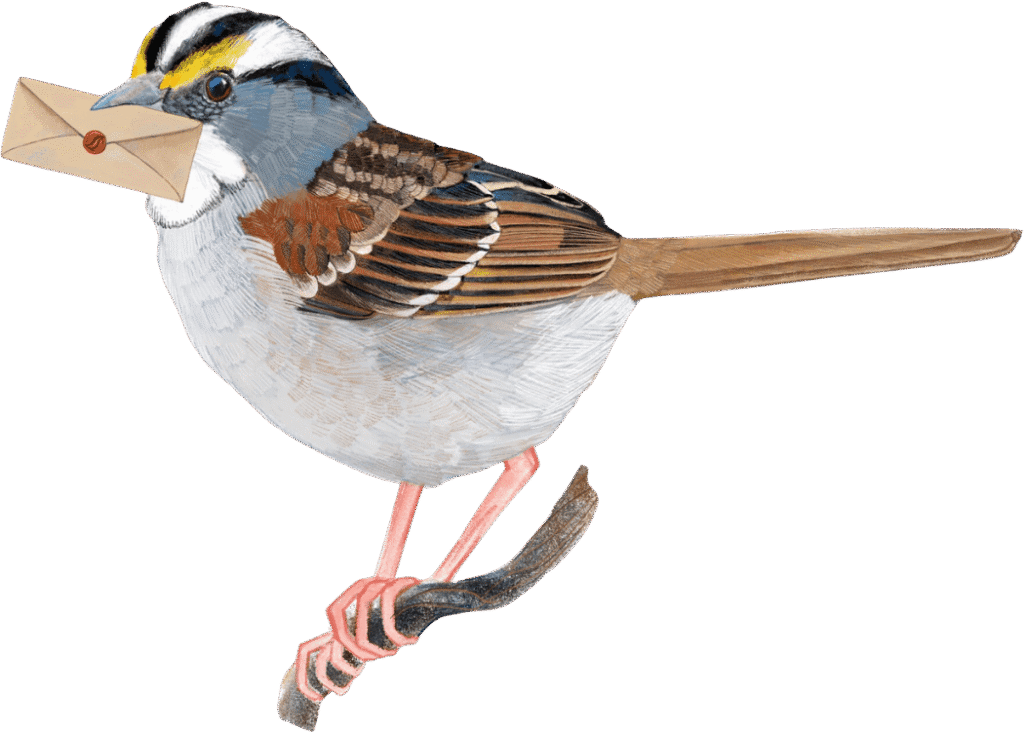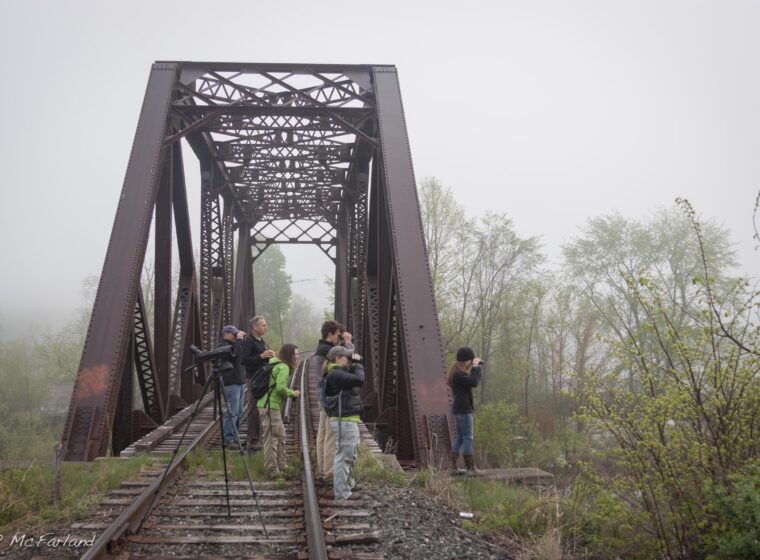
‘Green wave’ explains migratory bird routes
1.7 million crowd-sourced bird checklists from eBird used to construct a detailed picture of species occurrence for each week of the year to help explain bird migration patterns Migratory songbirds…
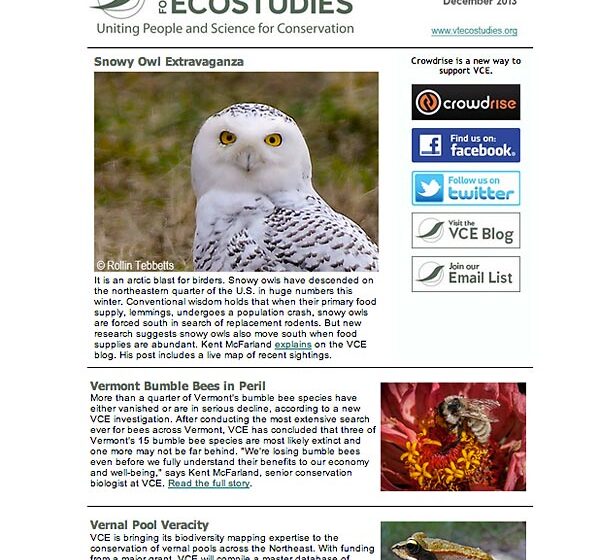
December eNews
The December edition of VCE’s eNews features snowy owls arriving, peregrine falcons dying, and vernal pools being conserved. If you’re not already an email subscriber, you can join with a…
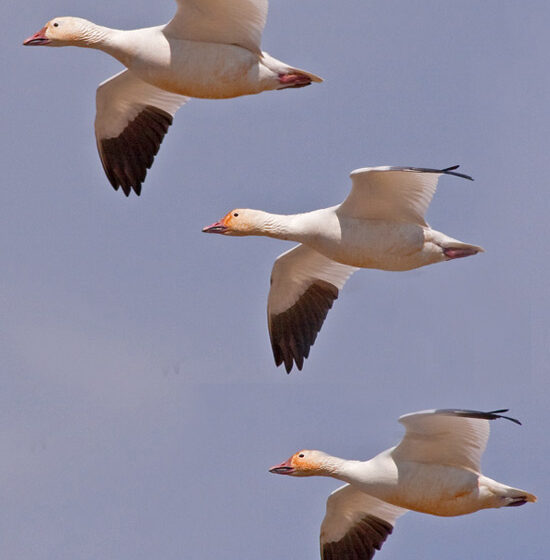
Counting Snow Geese
By Ian Worley The first autumn snowfall in Vermont is the landing of Snow Geese in the Champlain Valley. This year these white wonders have been few and far between,…
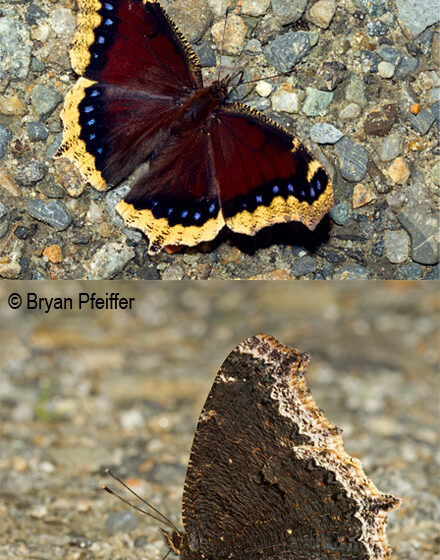
The Last Butterfly
For the past eight months they have flickered and fluttered among us – tiny flashes of red, orange, yellow and blue floating above hayfields and dancing in flower gardens: Spring…
